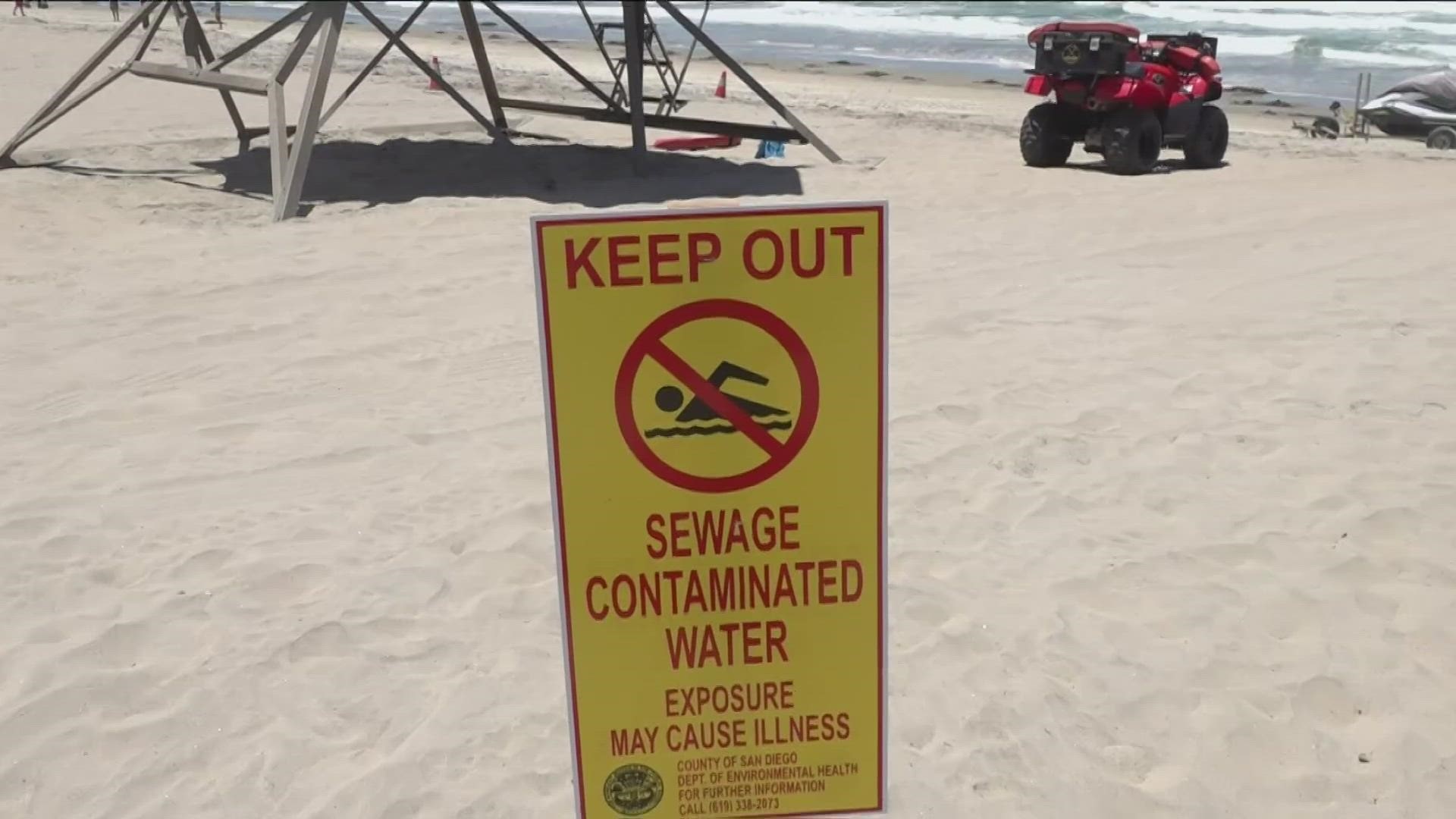SAN DIEGO — If you live near Imperial Beach, you could be breathing in sewage bacteria.
Bacteria from Tijuana pipeline sewage can become airborne through sea aerosols and affect nearby areas on land, according to a new study by UC San Diego's Scripps Institution of Oceanography.
“We’ve shown that up to three-quarters of the bacteria that you breathe in at Imperial Beach are coming from aerosolization of raw sewage in the surf zone,” the study's lead researcher and a Professor at Scripps Oceanography, Kim Prather, said in a press release. She continued, “The aerosols can travel long distances and expose many more people than at the beach or in the water.”
Prather warns the public that the findings do not necessarily mean people get sick from the contaminated sea aerosols. The researchers are now investigating viruses and pathogens in air samples to determine the risk aerosolized coastal water pollution will pose to the public.
“We're going to start swabbing the lifeguards and the surfer. Some of the surfers and families down there to sort of -- You can see it in the air, but what is physically getting into people?" added Prather.
Additionally, the team will look at air readings inside as well. They plan on putting samplers indoors to test for bacteria and chemicals.
Although more research is needed to find how far pollutants travel, researchers say it's likely that air currents can carry sea spray many miles further inland.
"The further it goes, the more diluted it becomes. There's human health, there's also agriculture health," said Prather.
The team said the findings justify prioritizing cleaning up coastal waters and stopping sewage flow from the Tijuana River.
The study was published in the journal Environmental Science & Technology. Researchers sampled coastal aerosols at Imperial Beach and water from the Tijuana River between January and May 2019.
The Tijuana Slough, Imperial beach, Silver Strand shorelines, and Coronado shorelines remain closed as the Tijuana River flows into these waters due to a damaged 60-inch sewage pipeline.
Thirteen million gallons of sewage flow into South Bay beaches' water. The beaches will remain closed until sampling confirms the areas are safe for water contact.
On the heels of this study, the San Diego Department of Environmental Health and Quality has issued a General Rain Advisory Wednesday for coastal beaches and bay due to recent rainfall. Beachgoers are advised not to contact the water during and 72 hours after it rains.
Rain caused urban runoff, which caused bacteria levels to rise in ocean and bay waters and could cause illness.
Here are the beaches that are under the Advisory:
- Children's Pool in La Jolla
- Tidelands Park in Coronado
- Torrey Pines at the Penasquitos Lagoon Outlet
- San Diego River Dog Beach in Ocean Beach
- La Jolla Cove
WATCH RELATED: Blown pipe in Tijuana causes sewage to spill into San Diego water (Feb 18, 2023)

